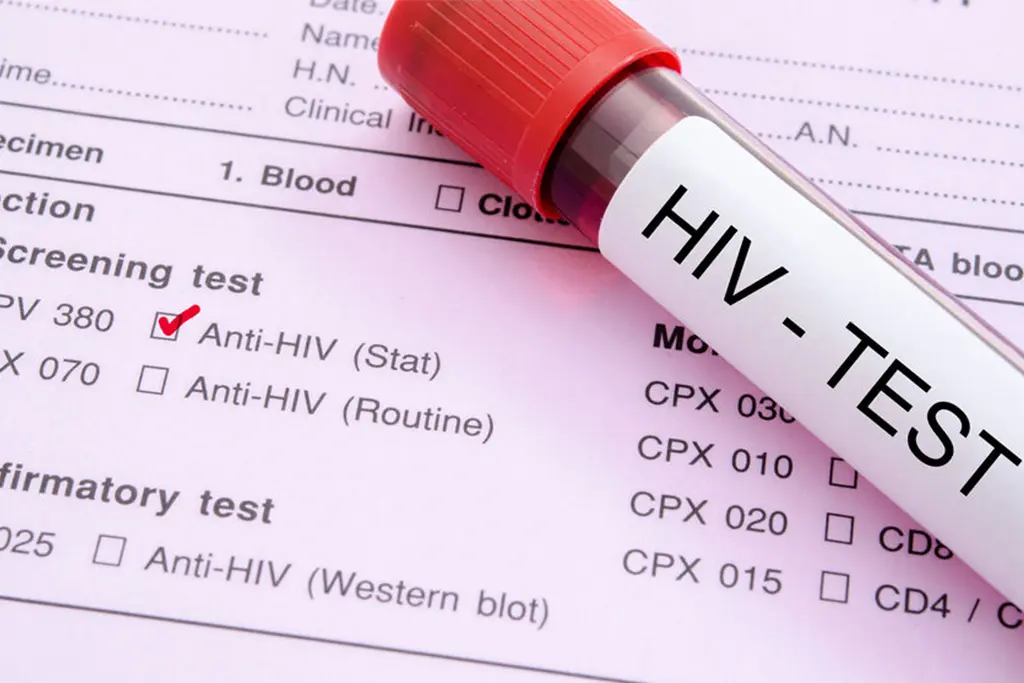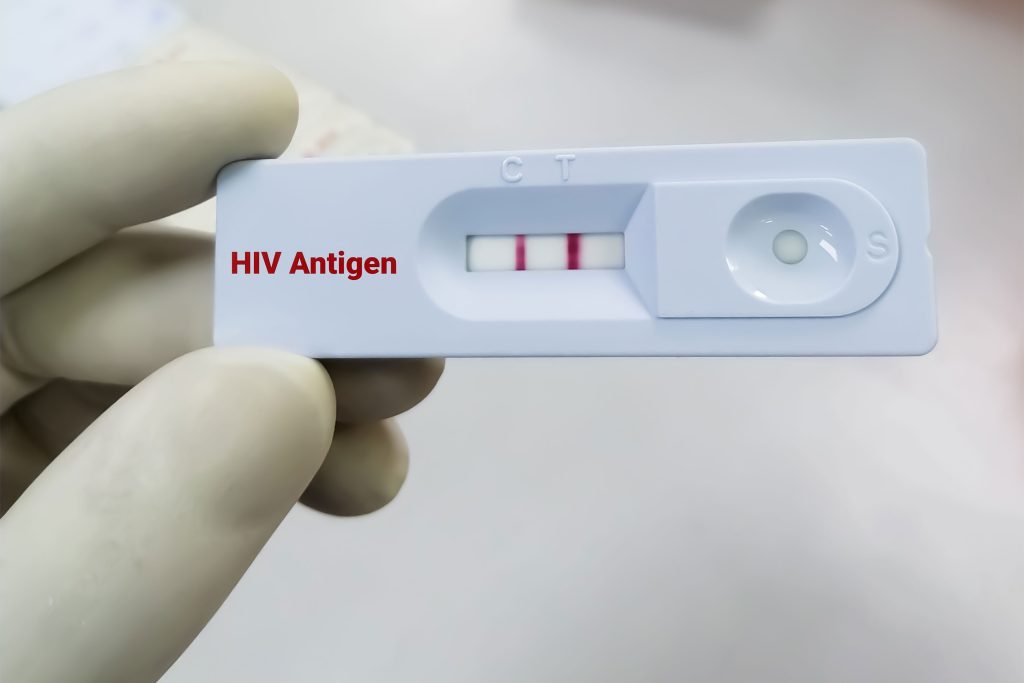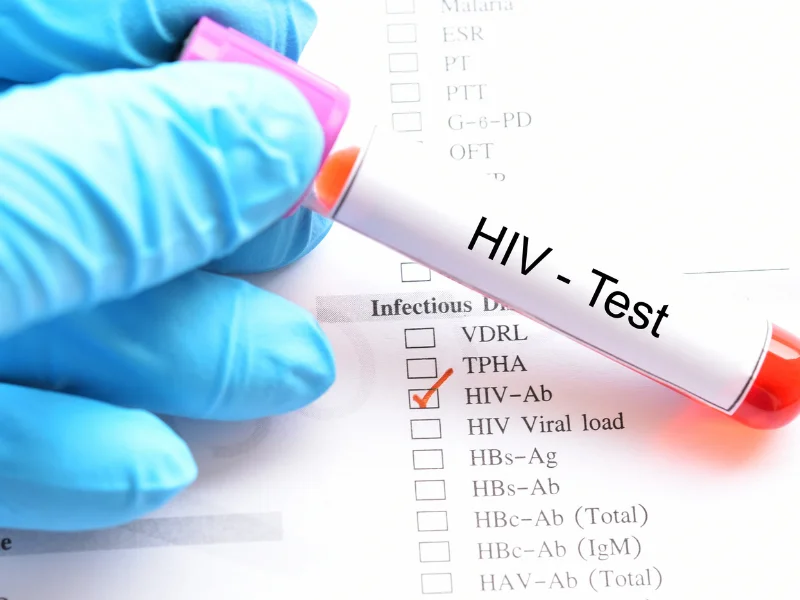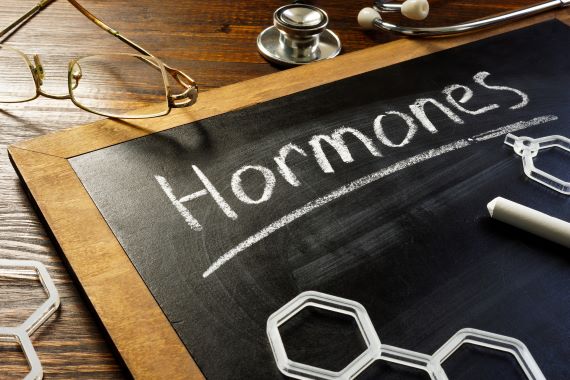No, A negative HIV test at 6 weeks is not conclusive; standard tests typically detect the virus within a few weeks to a few months post-exposure. While a negative result at 6 weeks is encouraging. However, healthcare professionals often advise retesting at 3 months (12 weeks) after exposure for a more conclusive result.
This is because some individuals may require more time to produce detectable levels of HIV antibodies. To ensure certainty regarding your HIV status, it’s essential to follow your healthcare provider’s guidance and undergo retesting as recommended.
What is an HIV test?

An HIV test checks for the human immunodeficiency virus, which can be transmitted through various means, including sexual contact, childbirth, breastfeeding, blood transfusions, and shared needles. HIV weakens the immune system, and if left untreated, it can progress to AIDS, a severe condition that makes the body vulnerable to life-threatening illnesses.
Since HIV can remain in the body without causing symptoms for years, regular testing is crucial. Testing helps diagnose the condition, even if no symptoms are present. Early diagnosis is vital because it allows for timely treatment, preventing extensive immune system damage. While there’s no cure for it, early treatment can prevent the progression to AIDS, enabling individuals to manage the virus with medications and lead normal lives.
How accurate are HIV tests?
HIV tests vary in how quickly they can detect the virus in the body. Some tests can find HIV within 10 days of exposure, but it may take months for others.
However, the accuracy of a negative test result depends on your body and the type of test used. Each test has a “window period,” which is the time between virus contact and detection. This period is different for each test and person. You should ask a healthcare professional about the window period for your specific test.
Newer tests can detect HIV antibodies and a viral protein called p24 to identify an infection. Because p24 appears before HIV antibodies, these tests have a shorter window period compared to older antibody tests.
The latest antigen/antibody tests are about 99 percent accurate within 44 days of exposure.
Types of HIV Tests and Detection Times
Nucleic Acid Tests (NAT): Also known as HIV RNA or viral load tests, these tests detect the actual virus in a lab-drawn blood sample. They can identify the virus 10 to 33 days after exposure and may help differentiate between acute and chronic HIV infections.
Antigen/Antibody Tests: Usually done in a lab with blood drawn from a vein, these tests can detect an infection around 18 to 45 days after exposure. If the test uses blood from a finger prick, it may take up to 90 days to detect an infection.
Antibody Tests: These tests can be performed with blood drawn from a vein or through rapid and at-home HIV tests using blood from a finger prick, saliva, or urine. While they can detect antibodies to the virus in as little as 23 days, it might take up to 90 days to get an accurate result.
Worried about your health or a loved one’s health? Ada now offers home test kits.
Think you might have a sexually transmitted disease (STD)? Begin by checking your symptoms with the free Ada app or learn more about the app first.
Types of HIV Test Results
Invalid Result: This indicates that the test didn’t work properly and needs to be repeated.
Non-Reactive Result: A non-reactive result means no HIV antibodies were detected, suggesting that the person is HIV-negative. However, it may not detect infections that occurred less than 2-4 weeks before the test.
Reactive Result: It is considered preliminary positive, indicating the presence of HIV antibodies or, rarely, a ‘false-positive’ result. It requires confirmation through a second blood test performed by a healthcare provider.
False Negative: Testing too soon after HIV exposure can lead to a ‘false negative’ result because it may take 1 to 12 weeks for the HIV test to become positive, depending on the test type and the body’s immune response. To ensure an accurate negative result after a risky exposure, a retest after 3 months may be recommended.
Factors to Consider When Interpreting a Negative HIV Test at 6 Weeks
When you’re wondering if a negative HIV test at 6 weeks is a sure thing, consider a few key factors. The “window period” is vital; it’s the time between potential exposure and when tests can reliably detect the virus.
Because at 6 weeks, some might still be in this period, making the test not fully conclusive. The type of test you take matters. Tests that check for both antibodies and antigens (like fourth-generation tests) are more accurate at this stage than those that only detect antibodies (third-generation tests).
Furthermore, your level of exposure risk is essential. If you had a high-risk exposure, like unprotected sex with an HIV-positive partner, you might need to wait longer for a conclusive result. Your health also plays a role. If you have health issues that weaken your immune system, it might affect test accuracy.
Choose a test with good sensitivity and specificity for accurate results. Some people opt for additional tests at 3 or 6 months for more certainty. Counseling before and after testing can help you understand the results and any limitations. Talk with a healthcare provider for personalized guidance is always a good idea.
Remember that the emotional impact of testing and the fear of HIV are real. No matter the result, practicing safe sex and taking preventive measures is crucial to reducing the risk of HIV transmission. It’s also important to communicate openly with your partner about testing and your health.
When to Consult a Professional?
Approximately 1.2 million people in the United States are living with HIV, and surprisingly, 1 in 7 individuals are unaware of their infection. Some people are at a higher risk of contracting HIV due to various factors, including:
- Engaging in vaginal or anal intercourse without using condoms.
- Having another sexually transmitted infection.
- Sharing needles or syringes.
There are also less common routes of HIV transmission, such as exposure to unsterile equipment during piercings, tattoos, or medical procedures, accidental needle-stick injuries, or receiving contaminated injections or transfusions.
To protect your health, it’s crucial to have a conversation with a healthcare professional about preventive strategies and the importance of regular HIV screenings. If your test results come back positive, a healthcare professional will guide you through the next steps, which may involve a confirmatory test and the development of a treatment plan if necessary.
When Should You Get Tested for HIV?
For sexually active individuals, regular HIV testing is essential for their own well-being and that of their partners. While everyone should consider undergoing an HIV test at least once during their lifetime, more frequent testing is advised for specific groups, including:
- Men who have sex with men.
- Individuals with multiple sexual partners.
- Those who have engaged in unprotected sex.
- People who have had sexual relations with an HIV-positive partner.
- Individuals who have had sexual contact with someone with an unknown sexual history.
- Those who have shared needles or syringes.
What do false negatives and false positives mean in HIV testing?

False negatives may occur if the test is conducted too early during the window period when the body hasn’t produced enough detectable antibodies, or if the test isn’t sensitive enough. It’s advisable to repeat the test after the window period has passed for more accurate results.
Then, false positives can occur, and a positive test result usually necessitates confirmation with a second test, which is normal practice in HIV testing to guarantee reliability.
What happens if an HIV test result is positive?
Don’t be concerned if your HIV test results are positive. The next stages will be guided by a healthcare professional. Life with HIV has dramatically improved over the years because to antiretroviral therapy. These drugs aid in virus control, viral load reduction, transmission prevention, and HIV progression.
FAQ’s
Q1: Can a 7-week negative HIV test turn positive?
A 7-week negative HIV test may not be conclusive. Some individuals may not have developed detectable antibodies at this stage, and the test may not be sensitive enough to detect them. A follow-up test is recommended for increased certainty.
Q2: Is HIV negative at 11 weeks conclusive?
Yes, HIV tests are considered conclusive 3 months (or 11 weeks) after potential exposure. This period provides a high level of reliability for the results.
Q3: How accurate is the HIV Tridot test after 6 weeks?
The window period for HIV infection with the Tridot test is typically 30-60 days. While it can be accurate within this window period, it’s important to note that a 6-week test may not cover the entire window, and testing at 3 months provides more confidence in the result.
Q4: Is a negative HIV test at 18 weeks conclusive?
An 18-week HIV test is generally considered conclusive. False negatives are more likely during the first 12 weeks, so an 18-week test provides a reliable result.
Q5: Is the 4th generation test conclusive at 11 weeks?
Fourth-generation HIV tests can detect the virus in the majority of cases within 11 weeks, but the most reliable results are obtained at 90 days (or 12 weeks) after potential exposure.
Q6: Which is better, ELISA or Tridot?
Both ELISA and Tridot tests have their advantages, but the sensitivity and specificity of these tests can be very high. The choice between them often depends on the specific context and guidelines in use.
Q7: Why is ELISA more accurate?
ELISA tests are highly sensitive due to the use of enzymes as reporting groups. This enzyme amplification system ensures high accuracy in detecting antibodies, making ELISA a reliable choice.
Q8: Can anything affect the result of an HIV test?
HIV antibody tests are generally not affected by external factors like infections, medications, vaccinations, eating, or drinking before the test. They provide accurate results under various circumstances.
Q9: Do I need to take another test?
If your last exposure was less than three months ago, it’s usually recommended to test again at three months after the exposure as part of good practice.
Q10: Can it take longer than three months for a test to work?
It is extremely unlikely that a test will take longer than three months to work. A negative result at three months is generally considered HIV negative, and there’s usually no need for further confirmation.
Q11: Is a negative test 100% accurate?
HIV tests after the 3-month window are more than 99.97% accurate, making them highly reliable. While extremely rare, there may still be occasional cases where a test does not detect HIV.
Q12: What is a ‘false negative’ test result?
A ‘false negative’ occurs when a test shows negative, but the person is actually HIV positive. This is rare, typically happening during the window period. The likelihood of a false negative is low, especially with 4th generation tests.
Q13: What is a ‘false positive’ test result?
A ‘false positive’ is when a test shows positive, but the person is HIV negative. This can occur with antibody tests, but the chance of a false positive is relatively low, especially with 4th generation tests. Additional testing is typically done to confirm positive results.
Q: What does a non-reactive HIV test mean?
A non-reactive HIV test signifies that your sample tested negative for HIV, indicating that you do not have the virus.
Q: How much does an HIV test cost?
HIV tests are often available at no cost or are partially covered by your health insurance. The price of HIV test kits may differ.
Q: How long does it take to receive HIV test results?
Collecting a sample for any HIV test typically requires just a few minutes. The time required to obtain your results varies, with rapid HIV tests offering results in approximately 20 minutes, while other types of HIV tests may take a few days for results to be processed.
What does the result of my HIV test mean?
If your test says “negative,” it means HIV wasn’t found in your sample, so you likely don’t have HIV. But remember, there’s a waiting time before HIV shows up on tests, so test again if you’ve been at risk. If it’s negative again, you’re likely HIV-free.
If you get a “positive” result, you’ll need another test to be sure. If that’s positive too, it means you have HIV. Two tests help avoid rare mistakes. If you have HIV, let your partners know and start treatment early.
Final Words
In summary, a negative HIV test at 6 weeks is a positive sign, but it’s not the final answer. The test may not be conclusive due to the window period. To be more certain about your HIV status, it’s often recommended to get retested at 3 months (12 weeks) after potential exposure.
Moreover, this extended testing period provides a higher level of reliability. In the end, responsible sexual health practices, regular testing, and consulting healthcare professionals are essential for overall well-being and HIV risk management.










